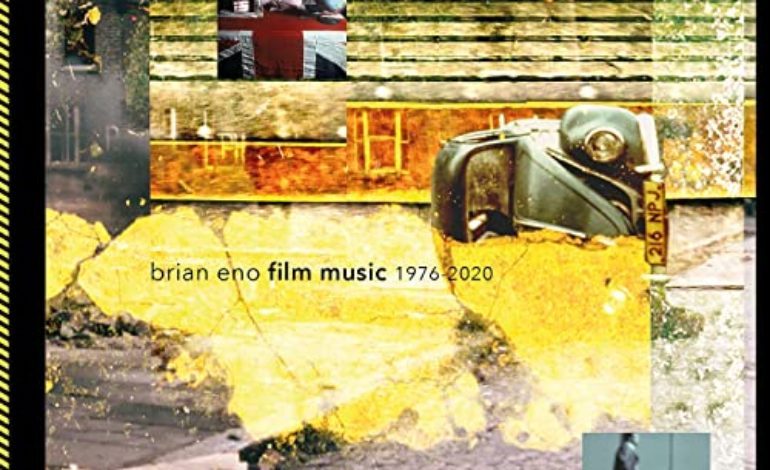

A soothing journey through time
Few artists could reasonably be described by a single word, but if any artist could, it would be Brian Eno. The word, doubtlessly, would be “cinematic.” Luckily for the world of film, Eno didn’t take this compliment towards his work as simple words, instead, he capitalized on his innate understanding of how to steer emotion through sound to help tell narrative stories in the world of film. Film Music is a lovingly assembled collection of highlights from Eno’s long career as a soundtrack/score artist showcases him at his absolute best, and possibly at his most soothing.
Recently, many music listeners have understood Eno not for the depth and breadth that he brought to his music, but rather its soothing qualities. While it is certainly true that Eno is a master of ambient, and much of his more recent work explores that space, his multifaceted nature seems to elude the modern understanding of him.
The songs selected for this particular collection are unlikely to sway that perception, but perhaps it doesn’t need to. The soothing notes of “Top Boy (Theme)” open the record with a relaxed clarity. Impacting and profound, the softness of the composition caresses the listener like a cool childhood blanket, swaddling them in a stunning comfort. The same is true of “Beach Sequence,” one of the only tracks featuring vocals (though they are sparingly deployed) which plays like a Real Estate track that has been stripped for parts and left gleaming and dry on the shore as if it were the remains of a beached whale.
No song particularly stands out for its dynamic range. “You Don’t Miss Your Water” features the most vocals, which does set it apart in some ways. “Under” plays with a more present percussive element than any other song on the record, but it largely remains in the background. In the hands of most artists, these would be considered dull and tragic failures, but not in the deft and delicate hands of Brian Eno. The legendary songwriter and composer assembles the tracks with such care and nuance that they practically pull you into the world of the song, a sure mark of successful film scoring.
Whether one prefers the cool quiet of “An Ending (Ascent),” the shaky whine of “Undersea Steps” or the corporate background noise of “Design as Reduction,” Film Music impressively ties together the legacy of a man without equal. The fact that the sequencing actually functions with such a diverse selection of tracks is nothing short of a miracle. It may appear soothing from satellite view, but on the ground level, it becomes clear that this work is nothing short of a triumph.
